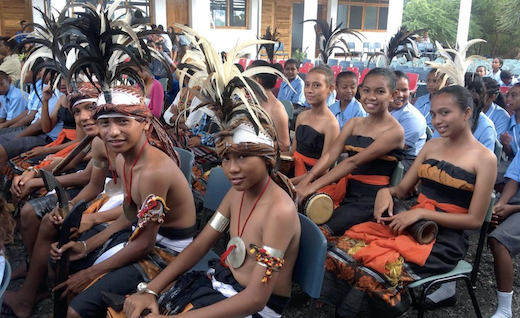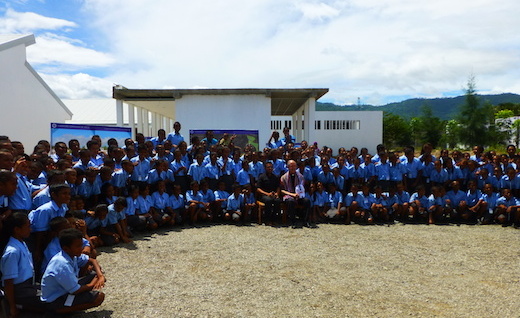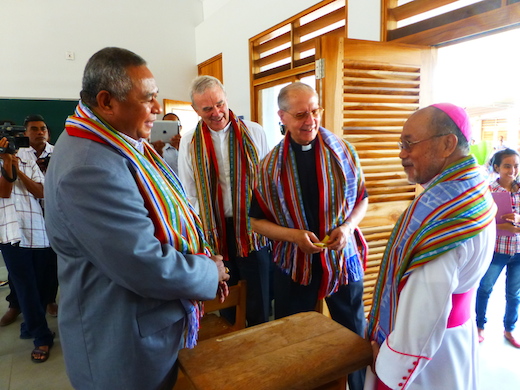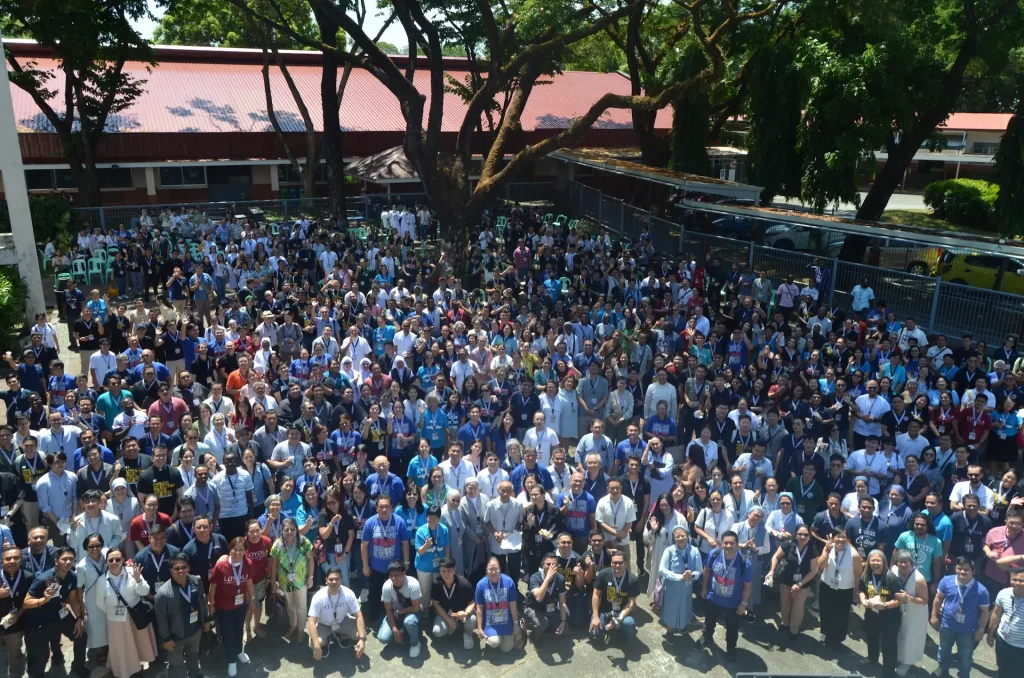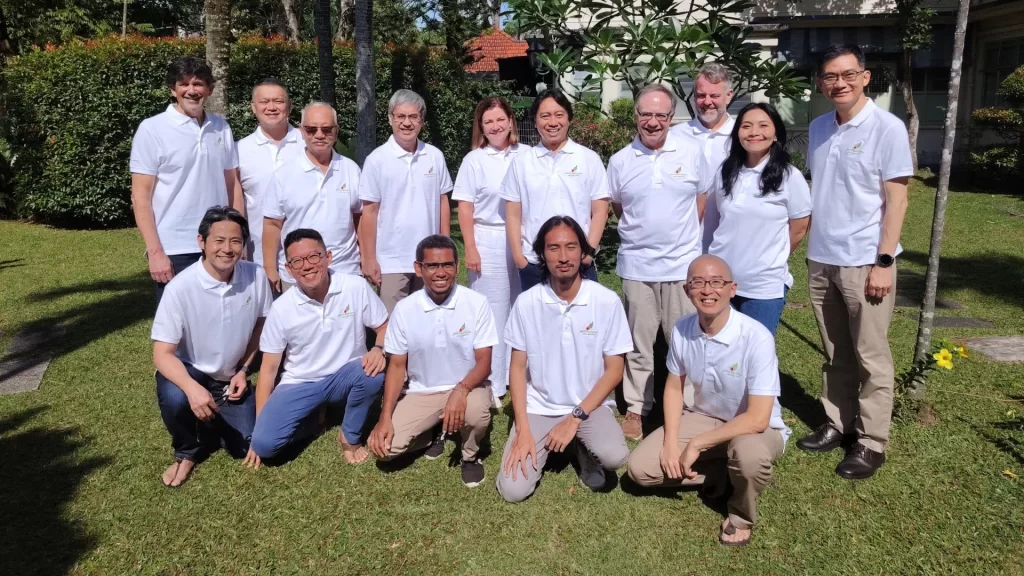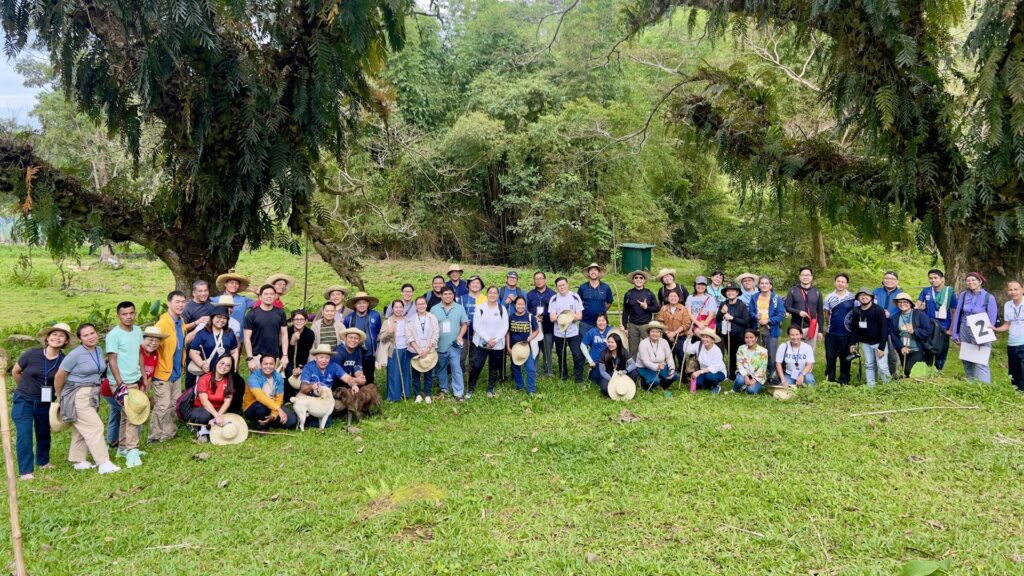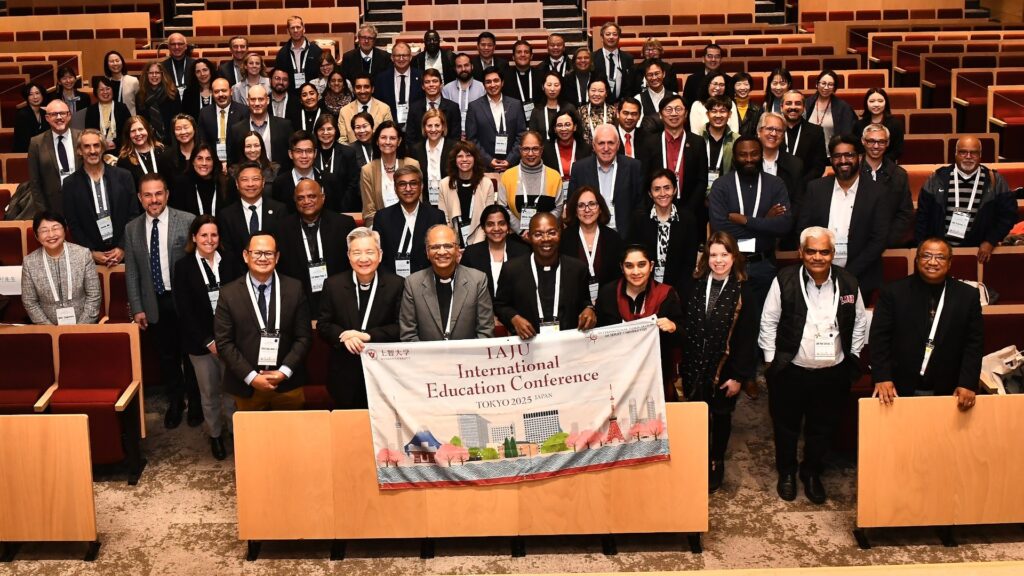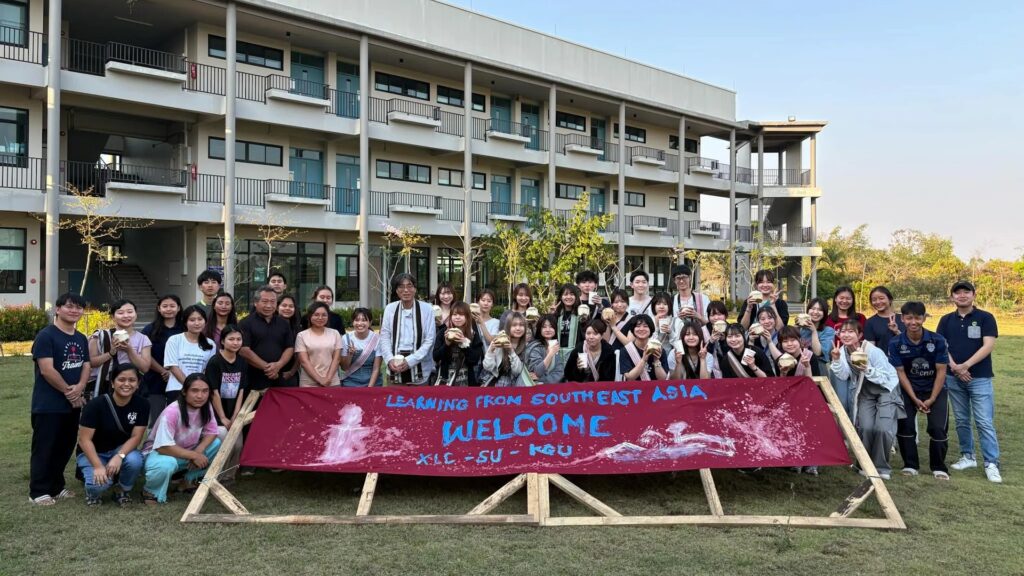Projeto Educação Jesuíta was inaugurated on January 25, with a number of special guests including Father Adolfo Nicolás, Superior General of the Society of Jesus, giving the project their blessing.
The distinguished guests included Minister of Education, Bendito Dos Santos Freitas; Minister of Social Solidarity, Isabel Guterres; Bishop of Dili, Alberto Ricardo da Silva; Vicar General, Fr Lucio Norberto de Deus, representing the Bishop of Maliana, Norberto do Amaral, in whose diocese the project is located; several ambassadors including the Portuguese Ambassador; local provincials of several religious congregations; all the major superiors in the Jesuit Conference of Asia Pacific; and Fr Mark Raper SJ, JCAP President and Superior of the Jesuit Independent Region of East Timor. The students and their families were among the some 500 people gathered for the event.
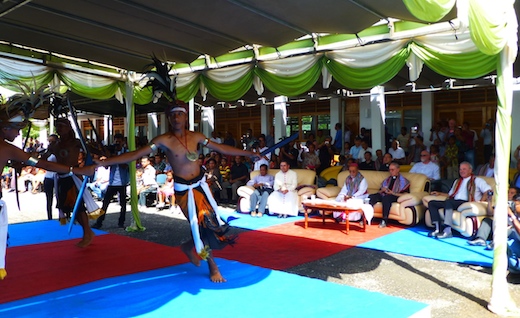
In his speech, Fr Nicolás stressed that the Jesuits are not building the project to continue a Jesuit tradition. “We open it to be part of the growth of a country like East Timor. That is why I am very happy that the Minister of Education is here because we want to collaborate with all the forces of the country to prepare a better future for East Timor.”
Jesuits first came to Timor Leste over a century ago and even in those early days there was a Jesuit education programme. More recently, the Jesuits ran a secondary school, Colégio de São José, for the Diocese of Dili until December 2011, and a secondary school in the parish of Railaco up in the hills.
“The Companhia de Jesus em Timor Leste today commits to continue to serve the Timorese people in the way it knows well, through learning,” said Fr Raper. “The Timorese nation is built by the Timorese people. We hope that today’s children will be the creative strength of that nation, the bearers of compassion and conscience, the skilled artisans of peace, the voices of truth and reason and a coherent faith. Through the formation of teachers and through our schools, the Jesuits are committed to form citizens who are proud of their Timorese culture and nation and of whom their nation is proud.”
The Jesuit education project will serve a need in the country for good secondary education with its complementary secondary school and teacher training institute.
“The long years of foreign occupation had a profound impact on society and this influenced the first years of post-independence governments. After Independence was restored in 2002, successive governments were confronted by the need to reconstruct totally an education system which would not just contribute to economic development, but would be relevant to and help to build the national identity,” said Minister Freitas.
“Over these past 10 years we have lacked infrastructure, equipment, qualified teachers and curricula, and on top of that the challenge of devising a system of education based on the two official languages, Portuguese and Tetum.”
The Minister commended the Jesuits on initiating the education project saying that “A distinctive mark of Jesuit education is its capacity to form citizens who are aware and responsible regarding society and their role in it: citizens who become models of ethical conduct, who reinforce the social structures and who give vitality to Christian and human values.”
For many Timorese Jesuits, several of whom received a Jesuit education, the project is the culmination of a dream for their country and their people. It is a dream that is being made possible through the support and generosity of Jesuits and benefactors around the world who have put their trust in the children of Timor Leste and want the best for them.
Related story: Fr General visits Korea and Timor Leste

